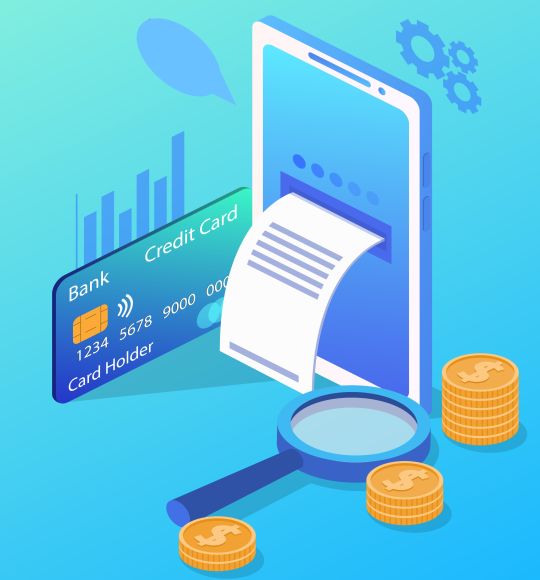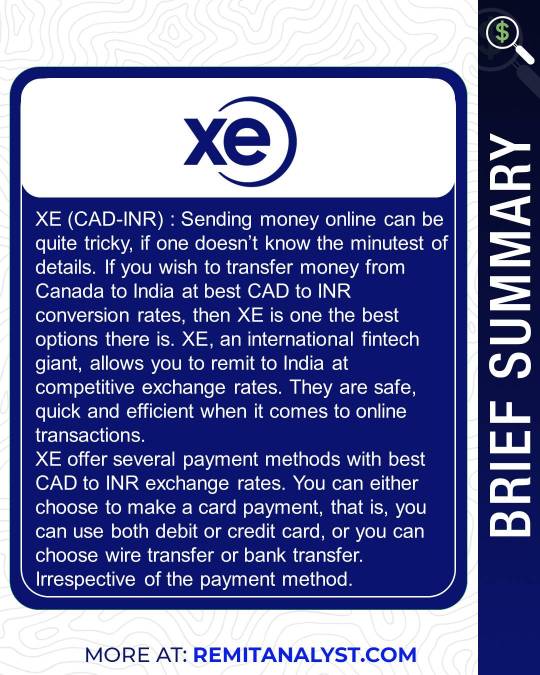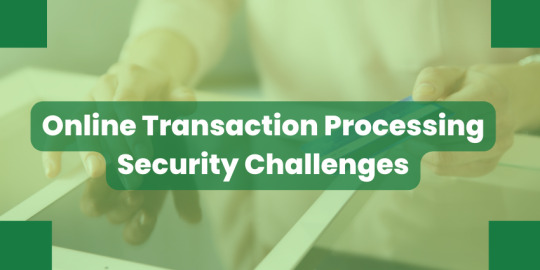#Online Transactions
Text
What Is a CID Number? Unlocking the Key to Card Security

In today’s digital age, where online transactions are as common as morning coffee, securing your financial information is more important than ever. But have you ever stopped to think about the little details on your credit or debit card that play a huge role in keeping your money safe? One of those often-overlooked details is the CID number. It might seem like just another random series of digits, but it’s actually a key player in the world of card security. So, what is a CID number, and why should you care? Let’s dive in!
0 notes
Text
Seamless transactions, hosted by our powerful API gateway
An API-hosted payment gateway serves as a pivotal link between online platforms, applications, or websites and the intricate network of financial transactions. Operating on the principles of Application Programming Interface (API), this gateway seamlessly integrates payment processing functionalities into digital ecosystems, providing a streamlined and secure method for handling financial transactions.

By leveraging API technology, businesses can effortlessly embed payment features directly into their software, enabling users to make transactions without redirecting to external payment pages. This integration not only enhances user experience by maintaining a consistent and branded interface but also ensures the security of sensitive financial data through encryption and compliance with industry standards.

API-hosted payment gateways facilitate real-time communication between the merchant's system and the payment processor, enabling swift authorization and confirmation of transactions. This dynamic interaction is crucial for e-commerce, mobile apps, and various digital platforms where instantaneous payment processing is essential for customer satisfaction.

Furthermore, businesses utilizing an API-hosted payment gateway can benefit from the flexibility to customize the payment flow, implement subscription models, and support various payment methods. The result is a versatile, user-friendly, and efficient payment solution that adapts to the specific needs of the business while meeting the rigorous standards of payment industry security.
read more
1 note
·
View note
Link
The first known online transaction took place in 1971 when students at Stanford University used the ARPANET (a precursor to the internet) to arrange the sale of a small amount of marijuana. The transaction was between students in the artificial intelligence lab at Stanford and students at the Massachusetts Institute of Technology (MIT). However, it doesn't technically qualify as a transaction because no money was exchanged online; the network was solely used to coordinate a meeting place. So, what was the first thing ever sold online?
1 note
·
View note
Text
UPI: India's Digital Payment Revolution | How it Works, Impact & Future
The digital landscape of India has undergone a seismic shift, and at the epicenter stands the Unified Payments Interface (UPI). This revolutionary innovation has transformed how we pay, send, and receive money, propelling India towards a cashless society with astonishing speed. But what exactly is UPI, how does it work, and what impact has it had on the nation? Buckle up, as we delve into the…

View On WordPress
0 notes
Text
How to make sure about safety in online transaction:

How to make sure about safety in online transaction
Ensuring safety in online transactions is crucial to protect your financial information and personal data. Here are some essential steps to help you stay safe when conducting online transactions: see more
Use Secure Websites: Only make transactions on websites that are secure and reputable. Look for "https://" in the URL and a padlock symbol in the browser's address bar. These indicate a secure connection.
Keep Software Updated: Regularly update your operating system, web browsers, and security software. These updates often include security patches that protect against known vulnerabilities.
Use Strong Passwords: Create strong, unique passwords for your accounts. Use a combination of upper and lower case letters, numbers, and special characters. Avoid using easily guessable information like birthdays or names.
Enable Two-Factor Authentication (2FA): Whenever possible, enable 2FA on your online accounts. This adds an extra layer of security by requiring you to provide a second verification method, such as a code sent to your phone, in addition to your password.
Beware of Phishing: Be cautious of emails, messages, or links that ask for personal or financial information. Cybercriminals often use phishing scams to trick you into revealing sensitive data.
Verify Website Legitimacy: Before entering payment information, verify the legitimacy of the website by checking for reviews, reading the website's terms and conditions, and looking for contact information.
Use a Secure Payment Method: Whenever possible, use secure payment methods like credit cards or digital wallets, which offer more protection against fraudulent transactions. Avoid using debit cards for online purchases since they are directly linked to your bank account.
Monitor Your Accounts: Regularly review your bank and credit card statements for any unauthorized transactions. Report any discrepancies immediately to your financial institution.
Be Cautious with Public Wi-Fi: Avoid making online transactions over public Wi-Fi networks, as they may not be secure. If you must use public Wi-Fi, consider using a virtual private network (VPN) to encrypt your connection.
Secure Your Devices: Keep your devices secure with passwords or PINs. Use biometric authentication methods like fingerprint or facial recognition if available. Lock your device when not in use.
Be Wary of Impersonators: Be cautious if someone contacts you claiming to be from a financial institution or online service. Verify their identity independently before providing any information.
Educate Yourself: Stay informed about common online scams and fraud tactics. Knowledge is one of the best defenses against online threats.
Use Trusted Apps: If you're using mobile apps for transactions, download them from official app stores like the Apple App Store or Google Play Store. Be cautious of third-party app sources.
Regularly Backup Data: Back up important data regularly to avoid losing valuable information in case of cyberattacks or data breaches.
By following these best practices and staying vigilant, you can significantly reduce the risks associated with online transactions and protect your financial and personal information.
0 notes
Text
Marcos emphasizes digitalization and online payment systems
During his 2nd State of the Nation Address (SONA) this past Monday, President Ferdinand “Bongbong” Marcos, Jr., emphasized the focus on digitalization and online payment systems for efficiency, achieving public service, easing the processes of doing business and cutting graft and corruption, according to a Philippine News Agency (PNA) report.
To put things in perspective, posted below is an…

View On WordPress
#Bongbong Marcos#Carlo Carrasco#digital#digitalization#Ferdinand Marcos#geek#governance#government#Marcos#news#online payment#online transactions#Philippine News Agency (PNA)#Philippines#Philippines blog#PNA.gov.ph#politics#President Marcos#public service#State of the Nation Address (SONA)#technology#WordPress#WordPress.com
0 notes
Text
Best CAD to INR conversion rates, XE
XE (CAD-INR): Transferring money online can be a complex task if you lack the necessary information. If you're looking to send money from Canada to India and secure the best CAD to INR conversion rates, XE is an excellent choice. As a leading international fintech company, XE offers competitive exchange rates for remittances to India. Their online transaction process is secure, fast, and efficient.
XE provides various payment methods with favorable CAD to INR exchange rates. You have the option to make a card payment using either a debit or credit card, or you can opt for a wire transfer or bank transfer. Regardless of the chosen payment method, the recipient will receive the funds in their bank account within approximately 4 to 5 business days. Cash pick-up services are not available. You can send up to $500,000 through XE. For transactions below $499, a small transfer fee of $3 is applied. However, transactions exceeding $499 are not subject to any transaction fees. It's worth noting that card transfers may not offer as competitive exchange rates as other methods.

#CAD to INR conversion rates#transfer money from Canada to India#competitive exchange rates#online transactions#payment methods#bank transfer
0 notes
Text
Webinar Wednesday: Decoding Decryption - Understanding the Process of Securing Data
Welcome to another exciting Webinar Wednesday! Today, we’re diving into the intriguing world of decryption, where we unravel the secrets of securing your data. Get ready for an informative and entertaining session as we decode the process of decryption using analogies, emojis, and our signature funny tone. So, grab your virtual seat and let’s begin!
Introduction to Decryption: Unlocking the…

View On WordPress
#data security#decryption#encryption algorithm#key management#layered security#lock and key analogy#online transactions#regular updates#secure communication#strong encryption
0 notes
Text
#education#elearning#e-learning#online transactions#online training#online education#custom design elearning solutions#elearning development#elearning company#interativ elearning
1 note
·
View note
Text
MobiKwik ZIP PayLater - Credit up to ₹60,000, Shop on 1Lakh+ Brands, and Minimal Documentation
MobiKwik ZIP PayLater is a payment solution that offers credit of up to ₹60,000 to customers. It can be used to shop on more than 1Lakh brands across India, making it a convenient option for those who want to make purchases without upfront payment. The best part is that it requires minimal documentation, making the process hassle-free for customers. With MobiKwik ZIP PayLater, customers can…

View On WordPress
#1Lakh+ brands#boost sales#buy now pay later#credit#credit card alternative#customer needs#digital payments#e-commerce#easy payment options#EMIs#finance management#financial technology#fintech#hassle-free#Indian brands#minimal documentation#MobiKwik#online shopping#online transactions#payment convenience#payment flexibility#payment gateway.#payment processing#payment security#payment solution#payment solutions#sales#shopping credit#ZIP PayLater
0 notes
Text
0 notes
Text
Online Transaction Processing Security Challenges
Security is a high priority when it comes to online transaction processing. This is due to the large amounts of sensitive data being processed, such as credit card information and social security numbers. A payment processing provider must always maintain the data's integrity. To ensure this, many organizations have implemented a comprehensive security policy addressing internal and external threats.

These security measures are crucial in ensuring the integrity of your business name and are just as important as having a good product or service.
Online Transaction Processing Security Threat
Like any other transaction, an online transaction passes through various intermediate systems before reaching its destination. Each of these systems is vulnerable to different threats:
Threats due to software vulnerabilities.
Threats due to flaws in operating systems, application programs, or database management systems.
Threats due to human errors like accidental breaches of security measures.
Threats due to malicious intent (intentional violation of security rules).
If not properly addressed, these threats can easily lead to fraudulent activities and compromise data integrity. The danger becomes real when an attacker accesses customer information or initiates illegal financial transactions. To mitigate these threats and challenges, we must implement appropriate security measures at every stage of online transaction processing.
Secure Online Transaction Processing
Any online transaction processing (OLTP) system must meet the challenge of recording and maintaining financial data in a secure, reliable, and timely manner. The security of this data is paramount to any financial institution or business that conducts online transactions. The goal of monitoring OLTP systems is to maintain high levels of security while providing timely access to information.
Understanding the threats posed by system failure is a top priority for companies that process OLTP data. While it may seem challenging to protect data from within, it is equally essential to safeguard the system from outside attacks by potential hackers who are always searching for vulnerable networks. Understanding the capabilities and limitations of existing monitoring technologies is critical to select the most appropriate solutions for your specific needs.
Here are some solutions to overcome the online payment processing threat.
Security Monitoring Tools
Security monitoring tools can help identify suspicious activity to protect against potential fraud attempts. They can also be used in risk management by analyzing transaction patterns and flagging unusual activity for further investigation. Security monitoring tools generally fall into two categories: agents and passive monitoring. Passive monitoring tools examine network traffic for warning signs of malicious activity, while agent-based tools monitor individual computers within a network in search of unauthorized activity.
PCI DSS Compliance
The Payment Card Industry Data Security Standard (PCI DSS) is a set of requirements designed to help merchants maintain secure online credit card transactions and the integrity of customer account data. It was first released in 2004 and has since been updated to include new threats and best practices for ensuring secure online transactions are maintained by retailers and third-party vendors, including payment processors and other merchant service providers.
Key Passwords
Always ensure that only authorized individuals can access passwords and other OLTP credentials. When users change their passwords, ensure they comply with any existing company password policies and don't reuse old passwords from previous accounts. This will help make sure those credentials are both secure and unique.
Client-Side Encryption
If your business deals in transactions that include sensitive customer information like credit card numbers and social security numbers, always use client-side encryption so that data is encrypted before it's transmitted over a network. It also goes for any files that store that type of data. It is an absolute must unless you want your corporate database to get hacked by identity thieves.
Read more about: mission critical data center
Conclusion
The security threats on online transactions have become more complicated and sophisticated in the last few years. As time goes by, security issues arise, and new measures must be taken to protect consumers and businesses using these platforms. The biggest challenge facing companies is ensuring that security measures are in place that protects the consumer from harmful sites and their own business from fraudulent charges on their credit card accounts.
Fraudulent transactions are a severe issue for online businesses because it costs them hundreds of thousands of dollars each year to ensure that their customers receive legitimate products and services from them. They invest this money into credit card processors and fraud prevention software to protect their company's reputation and their customers from being scammed by an illegitimate business.
0 notes
Text
Top Finance App ideas for Startups
Top Finance App ideas for Startups
While witnessing a paradigm shift from traditional payment to online payment, the BFSI sector thrives at a rapid pace. In the financial sector, the term coined after the integration of technology has added convenience for clients and security for financial institutions.
Today, as individuals tend to use robust digital payment solutions to make payments online, the fintech sector can offer start-ups a new set of opportunities.
Finance App Ideas for Startups:
Digital Banking:
This is one of the most important ideas startups should consider for fintech apps. Digital payment solutions have made transactions easier and allowed individuals to make payments online. For money transfer and other reasons, banks and financial institutions want to offer their customers a facility so that they do not need to visit the branch or even ATMs.
Digital banking solutions are designed to help clients invest, open accounts, block or unblock cards, add recipients, and the like by using only a few taps on dedicated apps.
Digital Wallet App:
The eWallet app development company enables app users to make online transactions without using physical wallets and credit or debit cards. With just a few taps, users can make payments and get discounts or coupons in return.
If a startup wants to come up with a digital wallet app, by improving security and offering an outstanding user experience, it can gain traction.
Blockchain Apps:
For all firms in the BFSI sector, blockchain technology is useful. These apps can provide users with plenty of options while providing improved security when making online transactions. Using cryptocurrencies, these applications also allow users to transact.
Crypto exchange Platform:
For financial startups, this is an innovative and unique app idea. Users can enter the decentralized market for cryptocurrencies through the platform. Cryptocurrencies, instead of other digital currencies, are traded. Some of the crypto exchange platform‘s best features include transparency, lower fees, faster processing, and the highest level of security.
0 notes
Text
অনলাইনে হাজার টাকার মিষ্টি কিনতে গিয়ে মহিলার ২.৫ লক্ষ টাকা খোয়া গেল
কালী পুজোর এই মরশুমে অনলাইনে মিষ্টি (sweet) অর্ডার করে প্রতারণার (fraud) শিকার হলেন এক মহিলা। এক হাজার টাকার মিষ্টি কিনতে গিয়ে তাকে প্রায় আড়াই লক্ষ টাকা দিতে হয়েছে। সূত্রের খবর, অনলাইন অ্যাপ থেকে মিষ্টি অর্ডার করতে গিয়ে এক মহিলা প্রতারণার শিকার হয়ে ২.৪ লক্ষ টাকা হারালেন। রবিবার ঘটনাটি ঘটেছে আন্ধেরিতে। ৪৯ বছর বয়সী পূজা শাহ নামের এক মহিলা রবিবার একটি খাবার সরবরাহকারী অ্যাপ থেকে মিষ্টি অর্ডার…

View On WordPress
0 notes
Text
Why Secure Online Transactions Are Crucial for Businesses
Technology has made everything easy and less time-consuming and brought the whole world to our fingertips. Read more on why securing online transactions are crucial for a business.
0 notes
Text
Is your Crypto Data safe?
Do you know that there are thousands of hackers looking for an opportunity to hack your Crypto data? And as soon as they get an opportunity BOOM-all your data is hacked, used in financial frauds and you're left with nothing. So it's better to take precautions before than to regret them later. And what can you do? Use a VPN.
Following are the advantages of using a VPN.
Access Crypto Platform anywhere: For instance, you've to go out of town, and upon reaching, you come to know that there is a sudden increase in the Crypto Currency and this is the perfect time to trade. But guess what? You cannot access your Crypto Platform in the country you are currently in. And now you cannot do anything and eventually you lose the opportunity. How'd you feel? TERRIBLE, right? You don't want to feel this way right? In order to avoid this situation use a VPN. With a VPN you can easily overcome all the restrictions put by your Crypto Exchange. You can access the Crypto Platform from anywhere without any interruptions. Cool no?
Stay Anonymous: There are a lot of restrictions imposed by the government and the third-party makers which you have to avoid. But how can you do that? Simply, through VPN. VPN assigns you a temporary ID through which you can easily stay anonymous online and as a result, you remain safe from all kinds of Cyber attacks.
Safe connection: A VPN helps in protecting all your Crypto assets by encrypting your internet connection. As a result, hackers are not able to track you and your information remains safe. With this, you can easily use your Crypto wallet.
1 note
·
View note